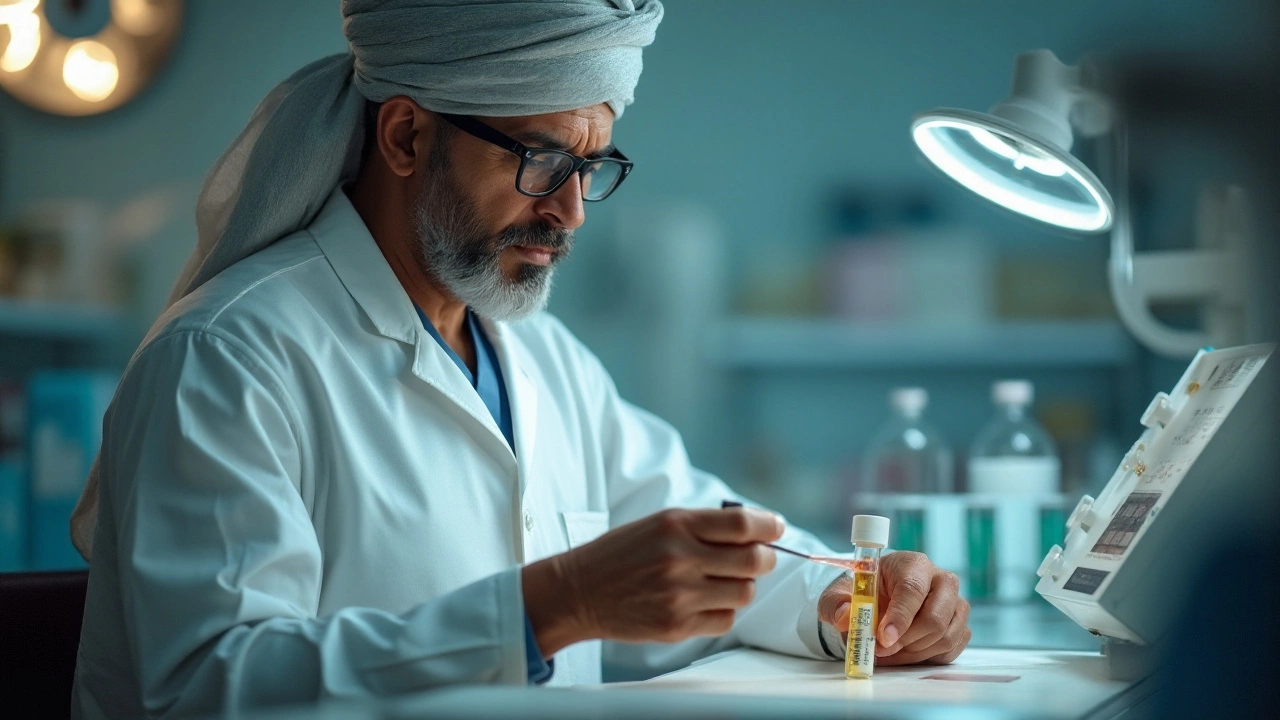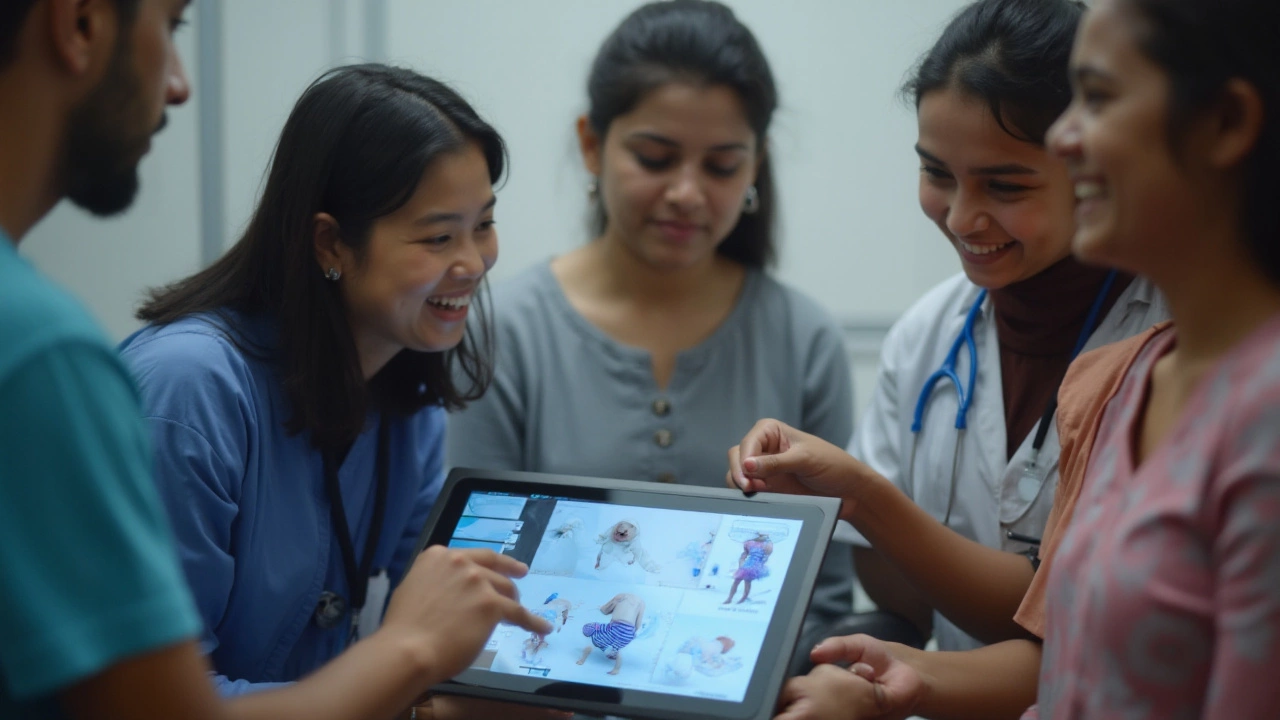
When embarking on the journey of in vitro fertilization (IVF), understanding each step can bring clarity and comfort. Sperm collection is one such step, often shrouded in mystery and fraught with questions. Knowing the methods and techniques involved transforms what could be an overwhelming experience into a manageable process.
Whether you’re exploring natural methods or undergoing clinical procedures, the key to a successful collection lies in education and preparation. This guide seeks to illuminate the various paths you might encounter and provide actionable tips to ensure the best outcomes. By breaking down the process into digestible parts, we aim to make the topic approachable and supportive for anyone navigating the world of IVF treatment.
- Introduction to Sperm Collection
- Natural Methods of Collection
- Clinical Collection Techniques
- Preserving Sperm Quality
- Common Concerns and Solutions
- Practical Tips for Successful Collection
Introduction to Sperm Collection
Sperm collection is a fundamental aspect of the IVF process, a cornerstone of assisting couples in overcoming fertility challenges. While it may sound straightforward, the procedure involves an array of methods and considerations that are crucial for the success of fertility treatment. The importance of sperm quality cannot be overstated, as it significantly influences the likelihood of fertilization and, consequently, a successful pregnancy. Understanding the nuances of sperm collection is not only beneficial for those directly involved but also for partners and supportive professionals guiding the journey.
The motivation behind collecting sperm spans a diverse range of circumstances. For some, it's a part of routine IVF, while for others, it might result from medical conditions necessitating alternative reproductive methods. Regardless of the reasons, the methods employed aim to optimize sperm health and viability, ensuring that the collected sperm is in the best possible condition for fertilization. This is accomplished through minimizing stress, avoiding contamination, and focusing on precise timing and handling. As knowledge expands and technology advances, opportunities to improve sperm collection techniques continuously evolve, offering hope and options to those facing reproductive hurdles.
An interesting aspect to consider is the impact of lifestyle and environment on sperm quality before collection. Factors like diet, exercise, and even exposure to certain chemicals have proven effects on sperm. Medical professionals often advise patients to maintain a healthy lifestyle leading up to the collection to maximize the chances of successful fertilization. In fact, studies show considerable improvements in sperm parameters when lifestyle alterations are introduced well before the collection process. The synergy between medical science and personal care yields an empowering sense for those seeking such treatments and highlights the importance of a holistic approach.
Sperm collection requires a deep understanding of male reproductive health and its nuances. Physicians and fertility specialists play a crucial role in this process, guiding individuals on best practices, expectations, and outcomes. It's essential to establish a strong rapport with healthcare providers, as their expertise offers invaluable support. One of the often-cited resources, "The Science of Conception" notes,
"Effective collaboration between patients and their healthcare teams significantly enhances the success rates of assisted reproductive technologies."Such collaboration builds trust and streamline procedures, making the experience as positive and supportive as possible.
Natural Methods of Collection
For many individuals and couples stepping into the realm of sperm collection for IVF, opting for natural methods can lend a sense of familiarity and comfort. Often, the most common technique involves what’s called masturbation, performed privately, which then results in the collection of sperm into a sterile container provided by the clinic. This method, while simple, requires specific guidance to ensure the sperm is handled carefully to maintain its integrity. Clinics typically suggest avoiding any activities that could influence sperm quality at least three days before collection. Proper hygiene and an understanding of the collection environment are crucial, minimizing any loss of specimen or contamination. It's worth noting that this method respects personal privacy, often allowing collection to occur in the comfort of one’s home under certain conditions, provided specimens can be delivered to the clinic within an hour.
Aside from the logistics, there’s an emotional component to this process as well. The pressure to produce a sample on-demand can be stressful. Understanding that this is a common experience and seeking ways to relax can help ease anxieties. This includes being in familiar surroundings if possible, and perhaps listening to calming music. It's a personalized experience, and finding what works best for you is key.
"Natural collection methods are favorable because they respect the individual’s comfort and psychological readiness," notes Dr. Emily Thorne, an expert in reproductive endocrinology.Awareness about the biological timelines is also helpful; often, clinics recommend an abstinence period of 2 to 5 days to optimize sperm quality and count, offering the best chance for fertilization.
For those who might face challenges with the standard method due to medical conditions or psychological barriers, alternative natural methods are available, although less common. Techniques like using specially designed condoms during intercourse, commonly referred to as 'collection condoms', offer a natural approach while maintaining intimacy. These condoms are different from regular ones as they are devoid of harmful spermicides and fabricated from non-toxic materials to preserve sperm viability. However, communication with the fertility clinic to approve and provide these condoms is essential, as they ensure health standards and improve the active collection of viable sperm.
Given the advancements in reproductive technology, it’s encouraging to note that these natural methods maintain a key place within the spectrum of sperm collection techniques, allowing individuals to approach IVF with less apprehension. As with any fertility-related process, consulting closely with healthcare providers and using resources like counseling or support groups can provide the emotional buoyancy needed during this phase. Ultimately, choosing a method of collection that aligns with personal comfort and the clinic’s capabilities ensures a smoother, more empowering experience in this journey towards parenthood.

Clinical Collection Techniques
In the realm of IVF treatment, clinical sperm collection techniques are paramount when natural methods aren't viable or when specific medical conditions demand it. Medical professionals employ these techniques with utmost precision to ensure the highest quality of sperm is collected. One common method is the use of a procedure called testicular sperm extraction (TESE). This is often prescribed when the male partner has conditions like azoospermia, where sperm aren't present in the semen due to blockages or production issues. TESE involves taking a biopsy from the testes, offering a direct way to obtain sperm.
Another sophisticated method is known as percutaneous epididymal sperm aspiration (PESA). This technique is typically used in cases where the sperm cannot travel through the ductal system due to obstructions or congenital absence of the vas deferens. Conducted under local anesthesia, PESA involves aspirating fluid containing sperm from the epididymis using a fine needle. This method, while minimally invasive, requires a skilled practitioner to ensure the procedure's success and the comfort of the patient.
Technological advances have introduced microsurgical epididymal sperm aspiration (MESA), which offers a higher success rate by using a microscope to aid the collection process. This technique allows for the precise identification and retrieval of sperm while minimizing damage to surrounding tissues. MESA is most commonly recommended for men who have had a vasectomy or have a congenital absence of the vas deferens. Each clinical collection method has its nuances and must be tailored to the individual based on their specific medical situation.
According to Dr. John Smith, a renowned fertility specialist, "The selection of the appropriate sperm retrieval technique is crucial because it determines the subsequent steps in the fertilization process. The technique must align with the patient's physiology and the couple's fertility goals."
Understanding the Importance of Preserving Sperm Quality
Sperm retrieval procedures aren't just about obtaining sperm; they are also fundamentally concerned with preserving its quality. The collected sperm is carefully handled to prevent any degradation. Once retrieved, the sperm undergo thorough evaluation for motility and morphology, ensuring optimal conditions are maintained before freezing or immediate use.In certain situations, clinical techniques might need to be repeated, especially if prior attempts didn’t yield sufficient viable sperm for fertility treatment. Communication with the medical team is invaluable, as they provide guidance on ways to improve outcomes on subsequent attempts. Additionally, understanding the body’s response to procedures, as well as adhering to pre-procedure guidelines, can significantly influence success.
Patient Preparation and Aftercare
Patient preparation for clinical collection techniques is a crucial aspect. Patients typically undergo tests and screenings to assess general health and specific conditions that necessitate sperm extraction. It's important to feel comfortable asking questions and discussing any concerns with a healthcare provider. After the procedure, following through with recommended aftercare is essential for a successful recovery and to enhance future fertility outcomes. Most patients can return to normal activities within a few days, but any discomfort or complications should be promptly communicated to a doctor.In summary, clinical sperm collection techniques offer a valuable solution for couples facing fertility challenges. Through the expertise of medical professionals and the advanced technologies used in these procedures, successful IVF cycles are more achievable, paving the way for many hopeful parents-to-be.
Preserving Sperm Quality
When it comes to successful sperm collection for IVF, preserving sperm quality is an essential aspect that often makes all the difference. The process of preserving sperm quality starts long before actual collection. It involves taking proactive steps weeks or even months ahead. Gentle lifestyle changes like maintaining a balanced diet, regular exercise, and reducing exposure to harmful substances can significantly impact sperm health. High temperatures are particularly detrimental, so avoiding saunas, hot tubs, and tightly-fitted underwear is advised. Keeping the body healthy sets a strong foundation for sound sperm quality, making subsequent medical procedures more effective.
On the day of collection, temperature control remains a top priority. Freshly collected sperm needs to be handled delicately to prevent any temperature fluctuations. Laboratories are equipped with state-of-the-art technology to ensure that sperm samples are kept at an optimal temperature. Partnering with a skilled and knowledgeable fertility clinic is invaluable, as the technical know-how of preserving sperm quality is a unique skill. They use special containers, often made from advanced materials, to maintain the temperature uniformly. It's all about creating the right conditions where sperm can thrive.
Maintaining Chemical Balance
Aside from physical conditions, chemical balance plays a crucial role in sperm preservation. Factors such as pH levels and the presence of certain chemicals can either enhance or impair sperm viability. Many clinics employ buffers and solutions specifically designed to mimic the natural environment of the body. This involves using balanced salines or specialized media that protect sperm from external stressors. Adding stabilizing agents helps provide an ideal setting where sperm can maintain motility and vitality. When coupled with a sterile environment, these chemical aids contribute to an environment where sperm can be stored for extended periods without sacrificing quality.
Sometimes, sperm preservation extends beyond short-term storage, especially when samples are banked for future use. Cryopreservation, or the freezing of sperm, comes into play here. Advanced techniques in cryopreservation allow for the indefinite storage of sperm. The key challenge is managing ice formation within cells, which can damage internal structures. Scientists have developed cryoprotective agents that minimize this risk, thus preserving the integrity of sperm upon thawing. With frozen sperm, timing becomes flexible, eliminating the constraints of coordinating fresh sample availability during the IVF process.
"The preservation of sperm quality is not just a science, but a discipline," says Dr. Emmanuel Ruiz, a noted fertility expert. "It combines knowledge, precision, and care to optimize outcomes for couples seeking IVF treatment."
Lastly, there is a psychological component to consider. When individuals and couples are aware of the efforts and care that go into preserving sperm quality, it often reduces anxiety surrounding fertility treatments. Education plays a crucial role here, demystifying the procedures and instilling a sense of control in patients. Trust grows when transparency and communication are prioritized. Informed decisions about collection schedules, storage options, and overall treatment plans can enhance the experience. It's a holistic approach, where technology meets empathy, ensuring that sperm quality is never compromised.

Common Concerns and Solutions
Diving into the world of sperm collection for IVF can be a daunting experience. Numerous concerns typically arise, primarily regarding the potential impact of the procedure on one’s health and the collection's effectiveness in yielding viable sperm. One of the common anxieties involves the method of collection and how it could affect comfort and dignity. Many people fear that clinical collection techniques might be invasive or embarrassing, which can deter them from seeking assistance. However, clinics strive to create a private and respectful environment, minimizing discomfort. Nurses and clinicians are trained to facilitate the process discretely, preventing unnecessary distress and ensuring a stress-free procedure.
Anxiety about sperm quality is another significant concern. Factors such as lifestyle, diet, and even stress levels can influence sperm health considerably. It is not uncommon for individuals to worry whether their samples will be adequate for successful fertilization. Preparing beforehand can greatly improve outcomes. Maintaining a healthy lifestyle, avoiding tobacco and excessive alcohol, and consuming a balanced diet rich in antioxidants can enhance sperm quality. A study reported in the Journal of Andrology indicated that physical activity could improve sperm parameters, highlighting the role of fitness in reproductive health.
Addressing Emotional and Psychological Concerns
The mental aspect of the sperm collection process often goes unaddressed but is equally important. Feelings of inadequacy or stress about fertility treatment success may weigh heavily on individuals. Many worry about the stigma attached to fertility issues, which can lead to withdrawal and isolation. Counseling is strongly recommended as part of the experience. Fertility clinics often have counseling services or can recommend professional support networks to help individuals cope with the emotional ramifications.
Concerns about the effectiveness of the collected sperm are prevalent as well. Technological advancements have given rise to sophisticated methods to analyze and select the best sperm. Techniques like Intracytoplasmic Sperm Injection (ICSI) can enhance the likelihood of fertilization even when sperm quality seems compromised. The encouragement is to have these candid discussions with your healthcare provider to explore all available options fully.
"It’s essential to address every aspect contributing to successful IVF, including stress management, to remain holistic and effective," says Dr. Sarah Williams, a leading fertility expert whose research continues to inspire best practices globally.
For those concerned with procedural challenges, the primary tip is preparation. Knowing what to expect can alleviate uncertainty, allowing one to focus more on positive outcomes. Understanding that both clinical and emotional support systems are in place eases the journey. Addressing and openly discussing reproductive health and procedure-related worries with professionals is the first step in surmounting these obstacles.
Practical Tips for Successful Collection
Embarking on the path to successful sperm collection for IVF involves a mix of patience, knowledge, and attention to detail. There are numerous strategies that individuals or couples can adopt to optimize this process. Firstly, maintaining a healthy lifestyle is paramount. This means a balanced diet rich in fruits and vegetables, regular physical activity, and ample rest have been shown to positively impact sperm quality. Additionally, avoiding smoking, excessive alcohol consumption, and illicit drugs is crucial as these can significantly diminish sperm count and vitality.
Fertility treatment experts often stress the importance of timing during the collection process. It is advisable to abstain from ejaculation for two to five days before the collection. This period ensures that sperm count is at its peak while avoiding potential adverse effects on sperm quality associated with longer periods of abstinence. Managing stress through mindfulness techniques such as meditation or yoga can also play a significant role, as stress is known to impair reproductive health.
Proper hydration should not be underestimated as well. Drinking plenty of water aids in maintaining the volume and quality of the seminal fluid. Additionally, wearing loose-fitting underwear, such as boxers instead of briefs, helps in keeping the testes cool, thereby preventing heat-related decreases in sperm production. When approaching the collection day, choose clothing that provides comfort and minimizes restrictive pressure on the genital area.
"Educating patients about lifestyle adjustments can significantly enhance the success rates of sperm collection," remarks Dr. Emma Roberts, a renowned fertility specialist. "It's about making informed choices that support reproductive health."
For those undergoing sperm collection through clinical means, following pre-procedure guidelines provided by healthcare professionals is essential. Adhering to dietary restrictions, if given, and ensuring all paperwork and consent forms are completed beforehand can alleviate potential stressors on the day. If the procedure involves anesthesia, make arrangements for transportation post-procedure to ensure a safe return home.
- Maintain a balanced diet.
- Avoid harmful substances.
- Abstain for the appropriate period before collection.
- Manage stress efficiently.
- Stay hydrated and keep it cool.
- Follow all medical instructions carefully.
Ultimately, successful sperm collection is about informed preparation, adhering to best practices, and making lifestyle choices that promote reproductive health. By taking these steps, along with the support of medical professionals, individuals can navigate the IVF journey with increased confidence and hope.





Rohan Talvani
I am a manufacturing expert with over 15 years of experience in streamlining production processes and enhancing operational efficiency. My work often takes me into the technical nitty-gritty of production, but I have a keen interest in writing about medicine in India—an intersection of tradition and modern practices that captivates me. I strive to incorporate innovative approaches in everything I do, whether in my professional role or as an author. My passion for writing about health topics stems from a strong belief in knowledge sharing and its potential to bring about positive changes.
view all postsWrite a comment